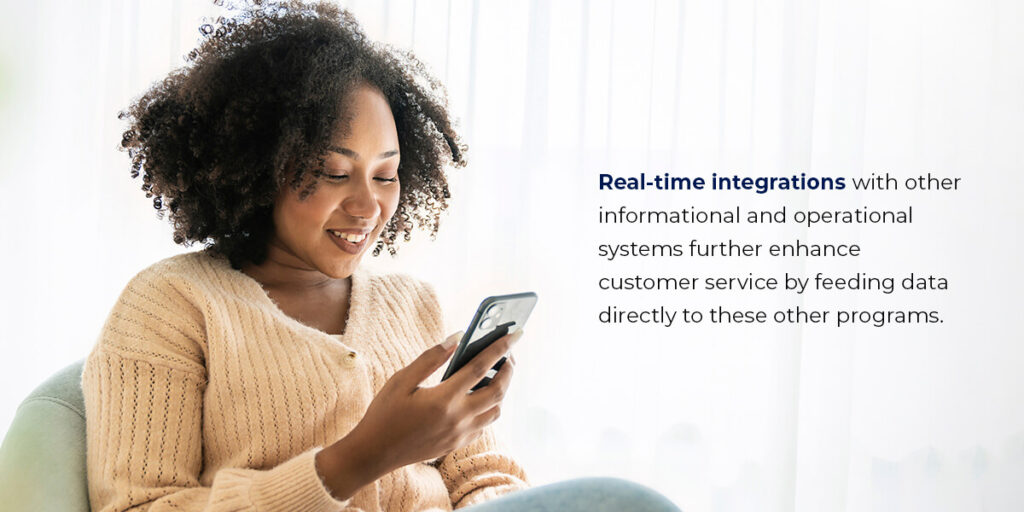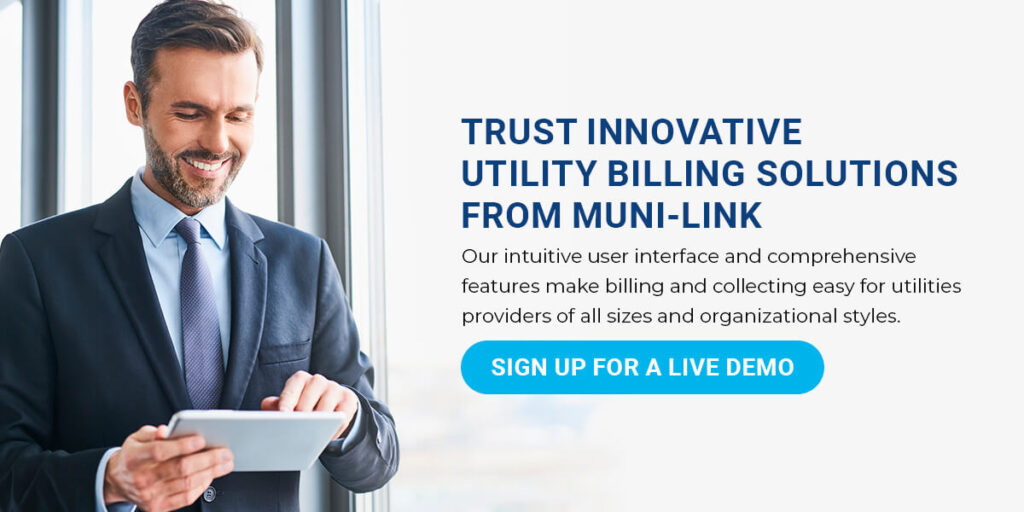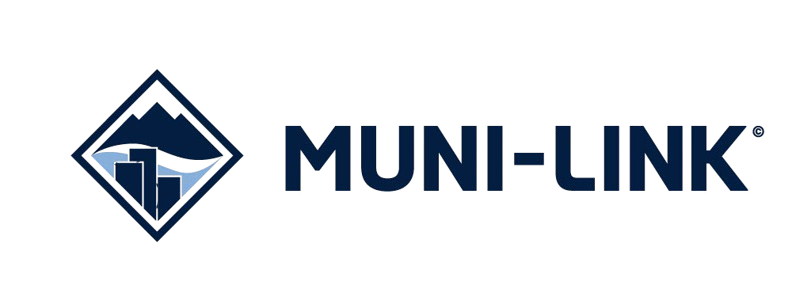
Introduction to Utility Billing Systems
Modern Utility Billing Systems – What They Are and Benefits
Utility billing providers face increasing demands for improved accuracy, efficiency and user convenience. Considering the technological advancements in this age of digital transformation, managing operations with up-to-date billing systems is crucial.
Modern utility billing systems are essential in streamlining operations and providing staff and customers with real-time access to information. Read this quick utility billing systems guide to learn about their benefits and how to set up a system that fits your needs.
What Is a Utility Billing System?
Also known as a customer information system, a utility billing system is software that helps utility pAlso known as a customer information system, a utility billing system is software that helps utility providers run their daily operations. Its primary function is to simplify billing and customer management so you can focus on providing better customer service.
Many modern solutions are cloud-based, which means your data gets stored in a remote location that you can access via the internet. This software is flexible and dynamic, allowing utility companies to choose the level of service needed and pay according to their usage. They use these systems to process various financial aspects of the business, including collecting customer usage data, generating invoices and tracking payments. Common features include:
- Basic billing and collection
- Penalties and interest
- Data security detail
- Backup and disaster recovery
- Ongoing technical support and customer service
To keep up with the evolving business landscape, companies need adaptable software. Reputable software providers, like Muni-Link, adjust features and services in response to user feedback. Look for versatility that lets you define how you work so you can tailor your software to your company’s unique specifications.
Why Do I Need Cloud-Based Utility Billing Software?
A well-designed utility billing system simplifies your day-to-day operations by consolidating all your data into one user-friendly system. Benefits of cloud-based utility billing systems include:
Improved customer service:Modern utility billing systems, such as Muni-Link, provide a convenient portal where customers can access information on demand. Others offer real-time integrations with other informational and operational systems, further enhancing customer service.

Increased operational efficiency: Automated billing and invoicing features lessen the amount of time employees spend generating and sending invoices, allowing them to focus on more urgent tasks.
Streamlined operations: A unified billing system provides a centralized hub for all your company and customer data, which eliminates time wasted searching for documents across multiple disparate platforms. Real-time updates provide total visibility into operations, eliminating the chances of repeat work and saving valuable time and money.
Enhanced accuracy: Automated utility billing solutions improve organizational accuracy by reducing errors and optimizing basic tasks. They also offer a generally intuitive system that eliminates the steep learning curve of many on-premises software programs.
Data-driven insights: Advanced utility billing systems generate detailed reports on billing, collections and usage trends, which are essential in informed decision-making.
Reduced costs: Transitioning to cloud-based utility management software removes the need for a physical infrastructure, significantly reducing your business’s costs. This also frees up valuable space in the office, which can be used for other purposes.
Scalability: A scalable cloud-based platform, such as Muni-Link, grows with your organization. As your business needs evolve, it allows you to add features, expand service areas or introduce new billing types without major IT investments. It also keeps your organization updated on industry best practices and regulatory requirements.
How to Implement a Utility Billing System
Here’s what the typical implementation and setup process looks like.
- Choose a billing system: After researching software vendors, you’ll decide on a program that works for your company. Then, you’ll likely hold several rounds of meetings to outline a project timeline with crucial steps and milestones.
- Extract your data: Once you begin the implementation project, you’ll extract the data from your existing system and convert it to a format that is compatible with your new billing software. With your vendor’s assistance, you’ll migrate this data into the cloud.
- Train your team: An essential step in implementing new software is ensuring everyone on your team knows how to use it effectively. You and your vendor will work together to train your employees on the program’s fundamentals and department-specific features.
- Test the system: Before officially launching your software, you’ll perform a few test runs to ensure everything works the way you need it to. You’ll also review and verify that you have completed all the previous steps.
- Go live: Immediately after a successful test run, you’ll schedule your go-live date. This step is usually the most complex part of the process for utility providers, as it involves running your first actual business cycle in your software.
After you finish all these steps, your organization will be ready to settle into business as usual. If you encounter any roadblocks in the early days of implementation, your vendor will be there to provide ongoing support as needed.
The Shift to Cloud-Based Billing
Originally, utility service providers would develop billing software in-house. While customizing every aspect of the design lets you tailor your software to your organization, it also limits your company’s ability to adapt and scale to meet your community’s evolving needs.
Over the years, companies in almost every industry have shifted from on-premises software solutions to more efficient cloud-based alternatives. They:
- Require easier setup: Cloud software can run on any internet-capable device, so there is no need for multiple installations on different devices.
- Have a more user-friendly design: Cloud solutions are generally intuitive and easy to use. User adoption is quick, as they don’t require advanced software skills. Companies can begin integration even without the need for lengthy training.
- Enable increased visibility: All customer information and valuable data are centralized and accessible for key personnel. This level of visibility streamlines decision-making and enables a more personalized service to customers.
- Offer greater accessibility: Cloud-based billing systems can be accessed using any device with a decent Wi-Fi connection, unlike outdated systems that only run on local devices.
- Increase cost savings: Typically, the only additional expense of a cloud-based service is increasing your usage-based subscription. Cloud-based solutions remove the need for new infrastructure, which means lower upfront costs for companies.
Moving to the cloud also enables companies to better keep up with the rapidly changing utility management landscape. Read our case studies to learn more about how companies have used our utility billing software to improve operations.

What Sets Muni-Link Apart?
If you need to upgrade your utility billing software, consider investing in Muni-Link. Our intuitive user interface and comprehensive features make billing and collecting easy for utility providers of all sizes and organizational styles.
We offer a utility-specific, cloud-native platform with seamless integrations and superior customer service. Our utility management systems work with various software products, including:
- Asset management
- Geographic information systems
- Accounting software
- Utility meter reading software
Our goal is to provide a high-quality, dependable system and level of support you can trust. We adopt a customer-first approach, individualizing our services based on your unique needs and goals. We’re prepared to offer ongoing support so you can streamline management and accumulate savings over the long term!
Trust Innovative Utility Billing Solutions From Muni-Link
Gain total visibility into your data at a glance and accomplish time-sensitive business tasks from one user-friendly platform. Request a demo and see why Muni-Link is the top utility billing system for small municipalities and organizations.
